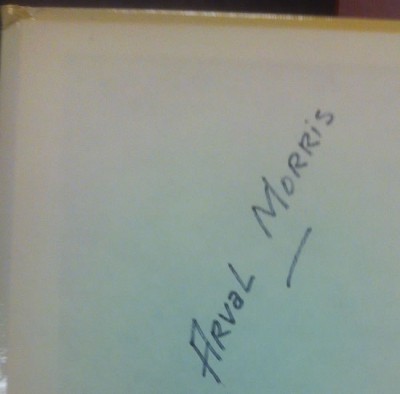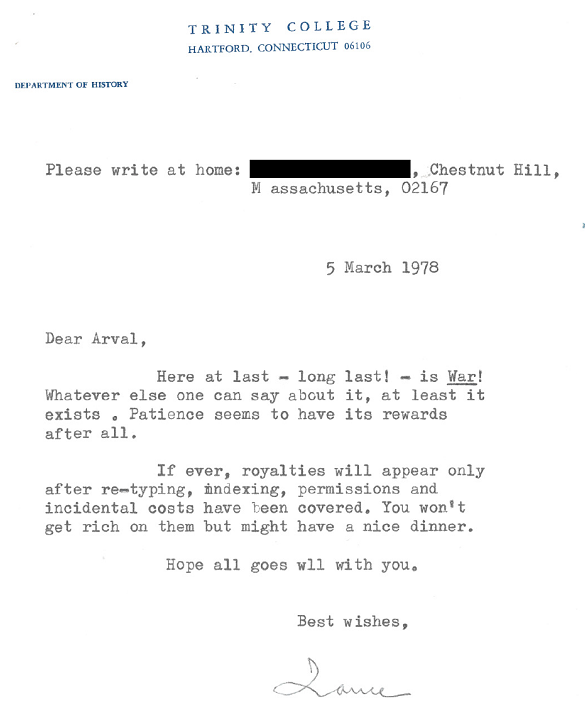I love buying old books about war. While they may be dated, I enjoy seeing how conceptions and mindsets differed over the years.
One of my more recent purchases, War: A Historical, Political and Social Study (1978), is a collection of essays, offering a post-Vietnam perspective from a variety of academic fields.
While my copy only cost $0.22, it was worth so much more.
Initially, I was perturbed by the name of the previous owner on the inside cover, but it turned out to be one of the contributors.

As I started reading, I eventually utilized the index where I found an old letter to one of the contributors, none other than Arval.

The letter demonstrates that much in the publishing world has not changed after 34 years. Articles and books take a while to reach publication. An article nets you only enough for a nice dinner.
As for Arval Morris, he passed away in 2008. He taught constitutional law at the University of Washington from 1955-2000. In his article, “International Law: Nuremberg, Tokyo, and Vietnam,” he examines whether the Nuremberg principles are sufficient for resisting the draft if an individual points to “crimes against humanity” (213-214). He ultimately concludes it is unlikely. He takes it one-step further, concluding, “American involvement in the Vietnam War is regarded by many as a crime against peace, but the case probably cannot be proven by Nuremberg standards, since there is no documentary proof of an intent to conduct aggressive war” (214). Given the publication date of the book, you can see why this topic was worth exploring.
My hunch is Arval’s copy of the book was liquidated along with his personal or professional library. No one ever noticed the letter tucked away in the index. The book is in like new condition, so he probably tucked it away in 1978 and never touched it again. Then some historically minded fellow bought it for $0.22.
Here’s to Arval.
